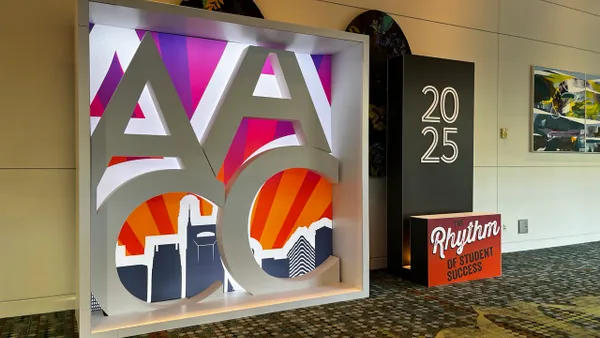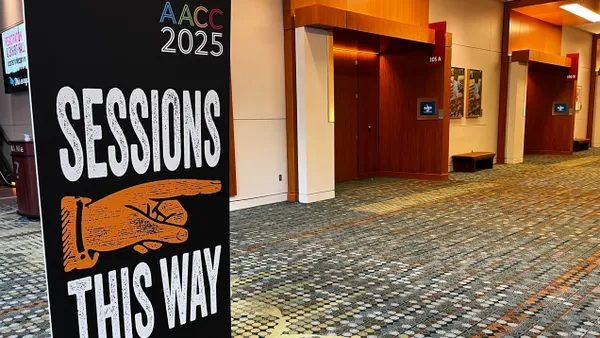Dive Brief:
- The federal government should use data it possesses and share it among agencies to alleviate burdens on administrators and on financial aid applicants selected for an audit process known as verification, according to a report published Monday.
- Those who fill out the Free Application for Federal Student Aid can be picked for verification, which is widely viewed as time-consuming and onerous, especially for students from low-income households. The new research from the National Association of Student Financial Aid Administrators and the National College Attainment Network suggests ways to remove some of these hurdles.
- The groups also suggest the U.S. Department of Education alter its algorithm to target those likely to have changes in the amount they're expected to pay for college. These proposals were widely supported by the organizations' members, according to polls they conducted.
Dive Insight:
A portion of college students is picked annually for aid verification, which is one of the Education Department's methods of ensuring the integrity of the federal student loan system.
The share of high school seniors selected for verification in recent years has ranged from nearly 40% of FAFSA completers in the 2018-19 academic year to about 23% this year, according to the NASFAA and NCAN report. NCAN is an advocacy organization that works to close equity gaps in higher education.
The Education Department had dropped many of these requirements for the 2021-22 enrollment period because of the pandemic. College access advocates applauded the move as helping underrepresented students. The agency has since signaled it may resume full verification for the 2022-23 cycle, though higher ed groups and lawmakers urged it not to.
The vast majority of students selected for verification were those who were eligible for federal Pell Grants, according to the report. Pell Grant eligibility is considered a proxy for low-income status.
The report states that the federal government should change its systems to allow the IRS to share income data with the Education Department. FAFSA filers whose information is transferred from the IRS shouldn't be subject to verification at all, according to the groups. And those who complete the process shouldn't be picked in subsequent years, either, they said.
Verifying a student hasn't completed a tax return is a particularly cumbersome part of the process, the report said. The IRS should also be able to confirm directly that a student has not filed a tax return, it argued.
Federal laws passed in recent years already ensure that these changes will happen eventually. But they are not expected until the 2024-25 FAFSA cycle, "leaving a pressing need for other solutions, at least for the short term," the report said.
The Education Department should also improve its algorithm for picking students for verification, it said.
It should focus on those who might see their expected family contribution — the federal metric that determines students' eligibility for some federal aid — change as a result of verification.
Prior research indicates verification doesn't typically lead to changes in students' EFC or Pell Grant eligibility. NASFAA found in 2018 that for 84% of those who went through an audit, EFCs didn't change, or they shifted so little that they didn't affect the size of Pell Grant awards.
The organizations drew attention to Black, Hispanic and low-income students, saying they bear "a larger share of the verification burden."
"For these reasons, it is essential that ED not only reduce the number of selected applicants but also amend its algorithm to better target applications that are most likely to contain errors in order to ensure equitable access to postsecondary education for all students," the report said.














